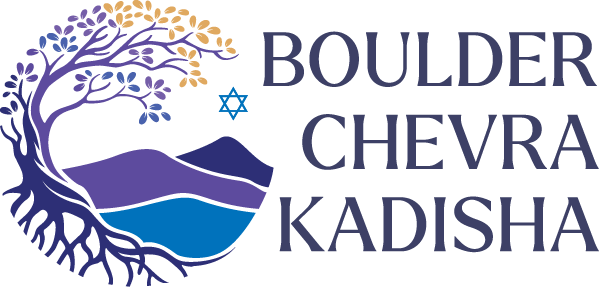Jewish End of Life Practices - The Funeral
By: Rabbi Eva Sax-Bolder, Community Rabbi Boulder, CO
What is a Jewish Funeral?
Courtesy of Kavod V’Nichun www.kavodvnichum.org
For a funeral to be considered Jewish, a few key elements are usually present:
Ritual preparation of the body for burial (taharah)
Rending of mourner’s garments (kri’ah)
Honoring of the deceased through eulogy and liturgy (hesped)
Burial of the body in the ground (k’vurah)
Community condolences at the gravesite and at the home of the mourners
What is a Jewish Funeral?
The Jewish funeral is known for its simplicity and authenticity. It is the means by which we acknowledge the merits of the deceased in a public forum while honoring them in death. The funeral and burial usually are done together, but often happen in two locations.
In the modern age, funerals might include a memorial service that happens separately from the burial, especially if the burial is limited to close family and the deceased was known throughout a larger community. In such cases, the graveside service might become the official funeral service, followed by burial, and sometime later a memorial service is held for the community.
What is a Jewish Burial?
The Jewish burial includes respect for the deceased as well as the family, aspects of mourning, community support, and simplicity. The basic premise is that we come from dust and will return to dust. Hence, we should be buried into the earth, usually as soon as possible after death.
Over centuries, burial procedures have changed little. The body is ritually prepared for interment, mourners rend their garments, specific prayers and liturgy are recited, the body is placed into the earth, and formal mourning begins.
Boulder County Mortuaries & Rabbis
3395 Penrose Pl, Boulder, CO 80301 (303) 442 4411
2969 Baseline Road, Boulder, CO 80303 (303) 440-3960
Haver - Rabbinic Council Boulder Colorado




